WHITE Pepper, UNSALTED Butter. Does it Really Matter?
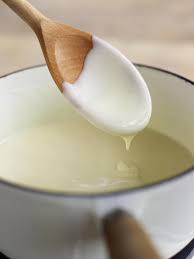
In the world of pepper, it all depends. Some recipes call for white pepper when uniformly light-colored results are desired. Alfredo sauce is a good example of a recipe that calls for a uniformly light-colored result.
Will black pepper destroy the whole dish? Of course not. But if you want to take your cooking up a few notches, then you want to follow directions as much as possible. (I struggle with this, but I know exactness makes a difference in a number of things, especially cooking.)
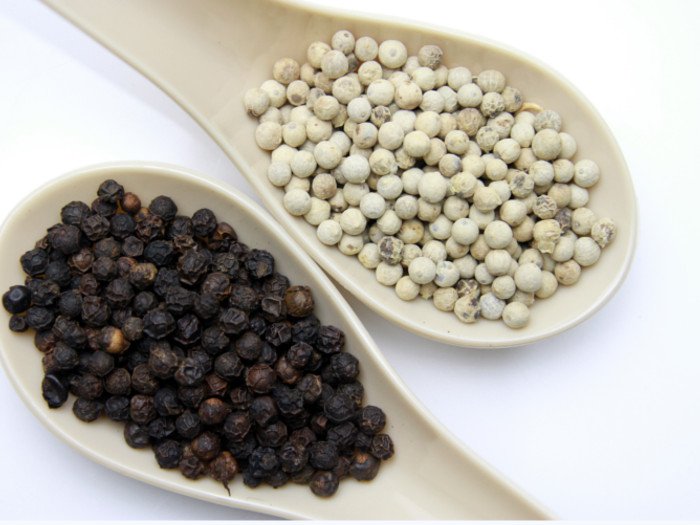
But if looks aren’t a consideration, does it matter if you substitute black pepper when a recipe specifies white?
If it calls for a large enough amount—yes. For instance, the pros at America’s Test Kitchen made two pots of a hot and sour soup (which traditionally calls for white pepper), using 1 teaspoon of black pepper in one batch and 1 teaspoon of white pepper in the other. Tasters noted that the soup with black pepper was more aromatic and had more spicy heat but preferred the soup with white pepper for its floral, earthy flavor and greater complexity.
However, when they tried the swap in a stir-fry that called for a lesser amount of white pepper, tasters had a hard time distinguishing them.
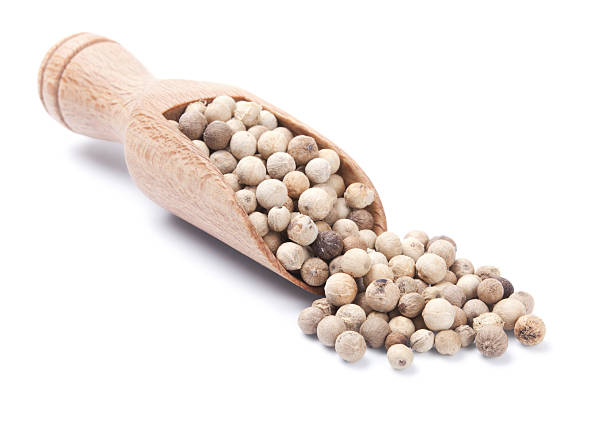
The difference in flavor between white and black pepper relates to how they are processed. To make black pepper, unripe berries from pepper plants are gathered and dried until the skins are blackened, which gives it its characteristic aroma and sharp bite. White peppercorns are fully ripened berries that have been soaked in water to ferment, and their outer skin is removed before drying. Although stripping the skin away removes much of the volatile oils and aroma compounds (most notably piperine, which is responsible for pepper’s pungent heat), allowing the berries to ripen longer lets them develop more complex flavor, while fermenting adds another layer of flavor.
So if you have a recipe that relies on a fair amount of white pepper for flavor, the folks at America’s test kitchen don’t recommend swapping in the black type.
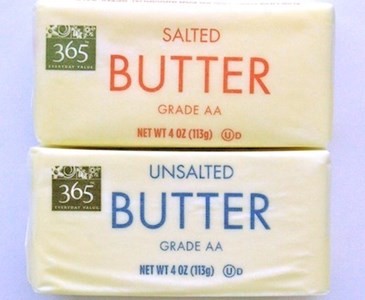
Now how about salted or unsalted butter. Does it really matter which is used? For this answer I turned to Joy the Baker (www.joythebaker.com). She’s very specific about how she likes her butter, and for some very important reasons. Sometimes melted and browned. Sometimes cold and cubed. Sometimes beaten with sugar and egg. Always though… most almost always, UNSALTED!
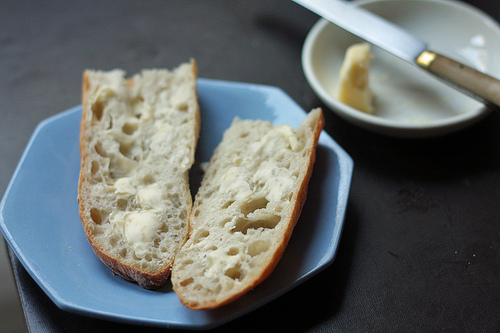
Sure, salted has its place. If you’re thinking about slathering your butter on a warm baguette, you’ll certainly salted butter. If you’re baking a cobbler, however, you’ll most definitely want to reach for the unsalted butter. Here’s Joy’s explanation as to why:
Unsalted butter ensures that you can control the amount of salt you add to your cakes, cookies, and so on. Also, different companies add different amounts of salt to their butter. How are we to know how salty our butter is, and how we should adjust the salt in the recipe? There’s too much guessing. Removing the salt from the butter equation puts us in control of salting. Control is very important when it comes to flavor.
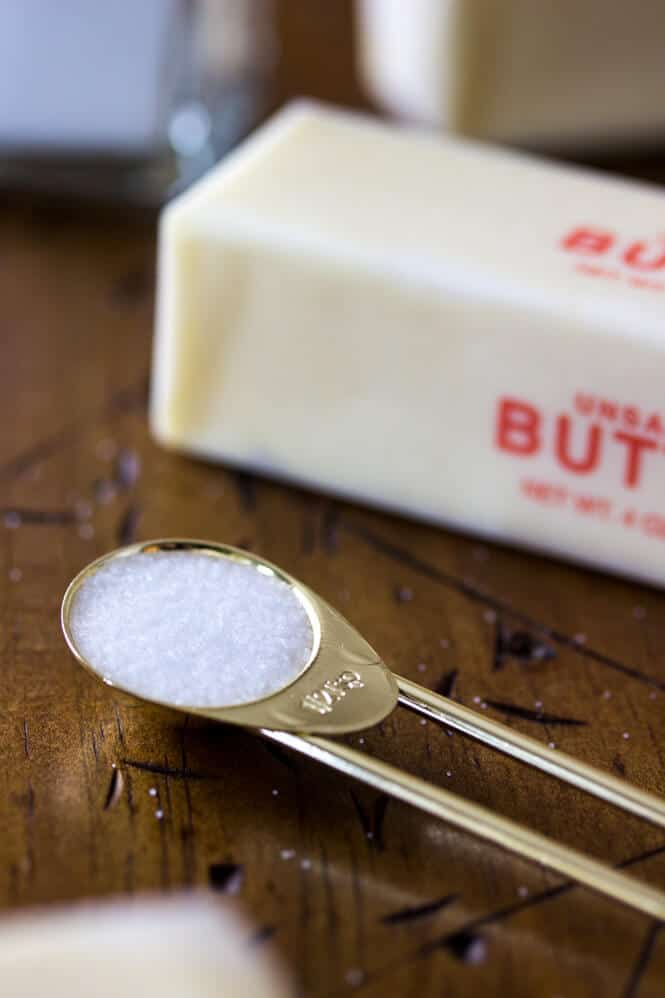
When a recipe calls for unsalted butter, that means that the salt levels in the recipe account for no other salt source. If all you have is salted butter, then at least try cutting the instructed salt amount in half.
Also, salt is a preservative. Salted butter has a longer shelf life than unsalted butter. That means that unsalted butter is typically fresher.
Salt also masks flavors! We may not be able to taste or smell if our butter is off because that clever clever salt can mask funky taste and odors.
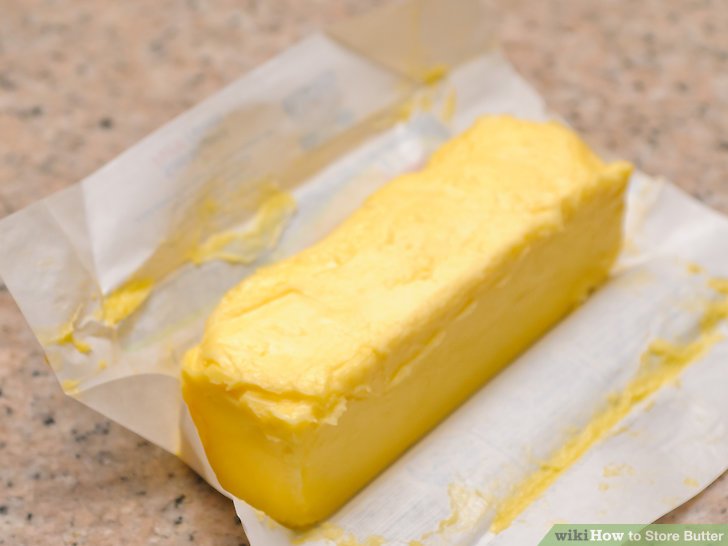
Does butter really go bad? You bet! Unsalted butter lasts about 1 month in the refrigerator. Salted butter lasts for just over 3 months in the refrigerator. If you think your butter might be off, give it a good sniff. The nose always knows. Also, slice your butter. Is the inside the same color as the outside… or is the outside a darker casing around the butter? Bad butter is two different colors.
So what happens if I just do what I want, ignore the recipe and use salted butter in baked goods?

Well, according to Joy the Baker, the world will end, and that’s that.
- www.thespruceeats.com
- www.organicfacts.net
- www.freeimages.com
- www.us.toluna.com
- www.davidlebovitz.com
- www.sugarspunrun.com
- www.wikihow.com
- www.survival-mastery.com
 Alice Osborne
Alice Osborne
Weekly Newsletter Contributor since 2006
Email the author! alice@dvo.com
